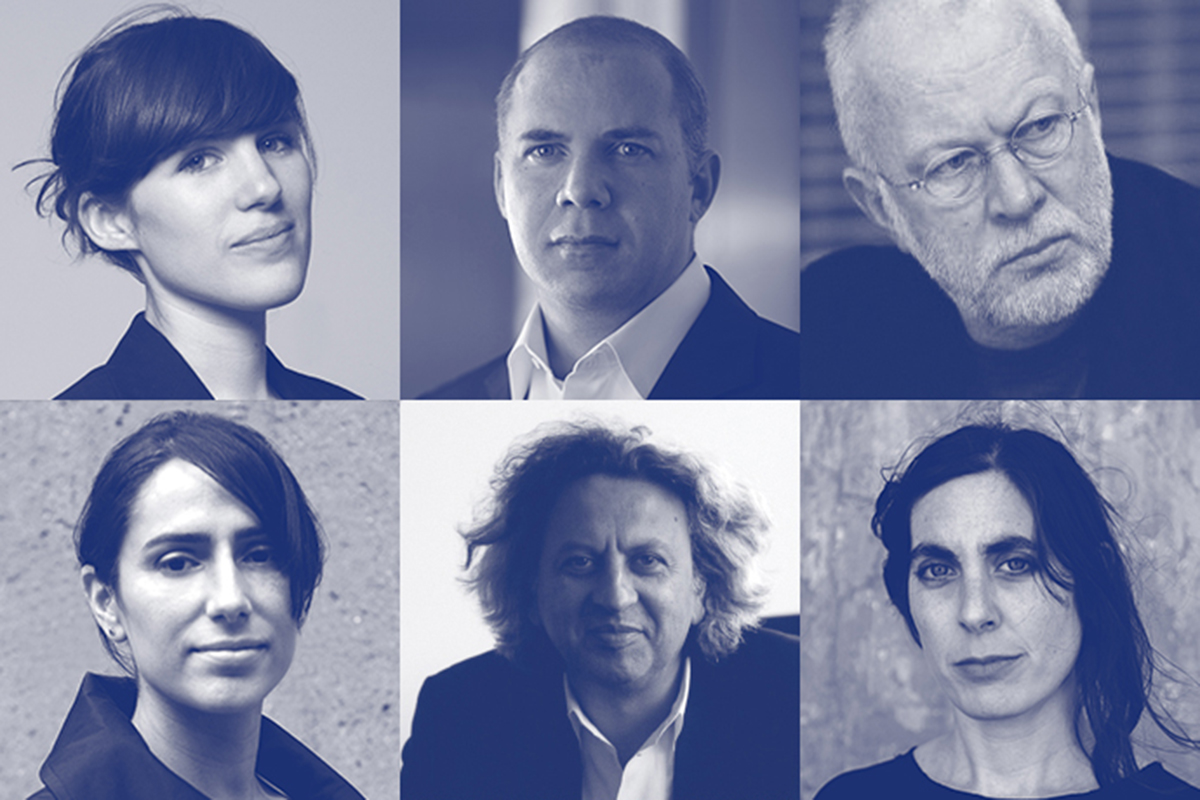Submitted by WA Contents
Harvard GSD announced jury for 2017 Wheelwright Prize
United States Architecture News - Jan 06, 2017 - 12:52 12467 views

The Harvard Graduate School of Design (GSD) has announced the jury for the 2017 Wheelwright Prize. The prize is now in its fifth year as an international open competition for a 100,000 USD grant to support travel-based architectural research. The prize originated in 1935 as a traveling fellowship intended to provide a Grand Tour experience to exceptional GSD graduates at a time when international travel was rare.
In 2013, the GSD opened the prize to early-career architects worldwide to invite new forms of hands-on research with the potential to expand practice. Eligible applicants must have received a degree from a professionally accredited architecture program in the past 15 years (2002 or later).
The Wheelwright Prize is currently accepting applications online; the deadline is February 3, 2017, midnight EST (note that the deadline has been extended from the previously announced January 31). The 2017 Wheelwright Prize Jury includes Beatrice Galilee, Gordon Gill, Mariana Ibañez, Gia Wolff, Mohsen Mostafavi and K. Michael Hays.
2017 Wheelwright Prize Jury:
Beatrice Galilee is the Daniel Brodsky Associate Curator of Architecture and Design at the Metropolitan Museum of Art in New York. Trained in architecture at Bath University and in history of architecture at the Bartlett School of Architecture UCL, Galilee specializes in the dissemination of architecture and design through media, curatorial practice, research, editing and teaching. She was the Chief Curator of the 2013 Lisbon Architecture Triennale, Close, Closer, and has curated exhibitions and events around the world including the 2009 Shenzhen Hong Kong Biennale, 2011 Gwangju Design Biennale, and 2012 and 2013 Milan Design Weeks. She is the cofounder and director of the Gopher Hole, an exhibition space in London, a critic for Domus, and associate lecturer at Central Saint Martins College of Art and Design.
Gordon Gill, FAIA, is one of the world's foremost exponents of performance-based architecture. His work, which includes the world's largest buildings as well as sustainable communities, is driven by his philosophy that there is a purposeful relationship between formal design and performance. Gill is a founding partner of Chicago-based Adrian Smith + Gordon Gill Architecture. His works include the world's first net-zero-energy skyscraper, first large-scale energy-positive building, the world's tallest tower, as well as the Astana Expo 2017 and its sustainable legacy community.
Mariana Ibañez is an associate professor at Harvard GSD, where she is part of the Responsive Environments and Artifacts Lab. She received her MArch from the Architectural Association in London before joining the offices of Arup Advanced Geometry Unit and Zaha Hadid Architects. In 2012 she cofounded Ibañez Kim, a design practice based in Cambridge and Philadelphia that engages the fields of material performance, spatial interaction, and robotics within architecture and urbanism. Her work includes collaborations with Grace Kelly Jazz, the Dufala Brothers, and Philadelphia Opera. Her work has appeared at the Museum of Modern Art, Milan Fashion Week, and National Art Museum in Beijing.
Gia Wolff is a New York–based designer interested in architecture that embodies a reciprocal relationship between the user and the built environment and questions the performative aspects of the discipline. In 2013, Wolff was the first winner of the relaunched Wheelwright Prize, with her proposal "Floating City: The Community-Based Architecture of Parade Floats," a study of parade floats—elaborate temporary and mobile constructions that are realized annually in carnivals around the world. She is a visiting architecture professor at Princeton University and adjunct assistant professor at Pratt Institute. Her work has been exhibited widely, including Canopy at the Tate Modern (London, 2014). She recently served as architecture director for the opening processional of the OMA-designed Faena Forum in Miami Beach (2016). Wolff is a member of the Phantom Limb Company, a New York marionette theater group.
Standing Wheelwright Prize Jury members:
Mohsen Mostafavi is an architect, educator, and Dean of Harvard University Graduate School of Design and the Alexander and Victoria Wiley Professor of Design. His work focuses on modes and processes of urbanization and on the interface between technology and aesthetics. He serves on the steering committee of the Aga Khan Award for Architecture and the board of the Van Alen Institute, and consults on numerous international design and urban projects. His publications include Landscape Urbanism: A Manual for the Machinic Landscape (AA Publications, 2004) and Ecological Urbanism (Lars Müller Publications, 2010).
K. Michael Hays is Eliot Noyes Professor of Architectural Theory and Associate Dean of Academic Affairs at Harvard GSD. Hays has played a central role in the development of the field of architectural theory and his work is internationally known. His research and scholarship have focused on the areas of European modernism and critical theory as well as on theoretical issues in contemporary architectural practice. He was the founder of the scholarly journal Assemblage and the first adjunct curator of architecture at the Whitney Museum of American Art (2000 to 2009). He is a member of the Wheelwright Prize organizing committee.
Applications are accepted online only. Applicants are asked to submit a CV, a portfolio (maximum ten images), a brief (700 words) research proposal, and a travel itinerary. Three finalists will be named in March and invited to present their proposals at Harvard GSD in mid-April. A winner will be announced later the same month.
Please direct media requests for high-resolution artwork, and interviews with jurors or past Wheelwright Prize winners to: Cathy Lang Ho, [email protected].
Top image: 2017 Wheelwright Prize jury (left to right, top to bottom): Beatrice Galilee, Gordon Gill, K. Michael Hays, Mariana Ibañez, Mohsen Mostafavi, and Gia Wolff.
> via Wheelwright Prize
